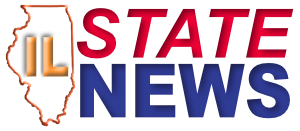
New bill proposed to eliminate Native American imagery and names in Illinois schools K-12

Sunday Sports Rewind; St. Joseph-Ogden advances to baseball title game




























St. Joseph-Ogden 3rd Quarter Honor Roll
 ST. JOSEPH - Last week, St. Joseph-Ogden High School announced the third-quarter Honor Roll and High Honor Roll recipients. Over 270 students at the high school earned third-quarter Honor Roll recognition.
To make the honor roll at SJO, students must earn a grade point average of 3.25 or higher on a 4.0 scale. Students whose GPA soared above 3.74 are recognized as High Honor Roll students.
ST. JOSEPH - Last week, St. Joseph-Ogden High School announced the third-quarter Honor Roll and High Honor Roll recipients. Over 270 students at the high school earned third-quarter Honor Roll recognition.
To make the honor roll at SJO, students must earn a grade point average of 3.25 or higher on a 4.0 scale. Students whose GPA soared above 3.74 are recognized as High Honor Roll students.
Freshman High Honor Roll
Samuel Albrecht
Zhou Barbee
Zachary Benoit
Colin Burnett
Elizabeth Clark
Abigail Crider
Hayden Dahl
Iris Davis
Nick Ditchfield
Madison Farber
Nathaniel Farney
Nolan Franzen
Leah Gaines
Skyler Graham
Anna Hammond
Mark Harbourt
Nicholas Harris
Tyler Hess
Maggie Hewkin
Brynn Ikemire
Mia Jones
Alivia Learned
Chase Mabry
Hadley McDonald
Finnegan Miller
Maddux Musselman
Mason Ramm
Peighton Reim
Kiah Riesel
Dennis Rineberg
Sophie Schmitz
Ava Smoot
Adeline Stevens
Ani Stine
Isabella Turner
Brayden Waller
Jack Wear
Kaden Wedig
Emerson Williams
Freshman Honor Roll
Alec Bowlin
Willis Canamore
Brenda Castro Gutierrez
Jaxson Colvin
Justin Downs
Aiden Hundley
Waylon Jones
Garrett Loschen
Avrianna Lyttle
Steven Newman
Mason Olinger
William Ricketts-Royer
Lilly Sollars
Cameron Wagner
Shelby Warns
Declan Yohnka
Dalton York
Sophomore High Honor Roll
Kylie Barrowman
Lexie Barrowman
Kaitlyn Beyers
Emily Bird
Tim Blackburn-Kelley
Aiden Bonny
Addison Brooks
Sara Bytnar
Jacob Carlson
William Carlson
Adelyn Childers
Katherine Ericksen
Callie Evans
Abigail Getty
Camden Getty
Zachary Harper
Claire Hartman
Bryson Houchens
Amelia Huckstadt
Lydia Huckstadt
Adalyn Jannusch
Kaelyn Jolley
Sophia Kasper
Madilyn Kelley
Samantha Kelso
Cooper Kietzman
Alexis Lackey
Ryker Lockhart
Mackenzie Loschen
Michael McDaniel
Danny McGinnis
Emma McKinney
Kodey McKinney
Patrick McMahon
Ava Midkiff
Ashlyn Miller
Hannah Mock
Delaney Nekolny
Allison Ochs
Brennan Oleynichak
Kayla Osterbur
Colton Overstreet
Garrick Page
Branson Pearman
Kaleb Peoples
Asher Pruemer
Ainsley Rhoton
Lily Rice
Landon Roberts
Logan Rosenthal
Amber Ruppel
Cameron Schlueter
Allison Schmitz
Gracyn Sjoken
Lucas Smith
Tao Smith
Karleigh Spain
Quinn Stahl
Sydney Steinbach
Hadley Sweet
Carlee Taylor
Sophia Vliet
Madeline Wells
Wyatt Wertz
Logan Xiao
Cyrus Zadeh
Sophomore Honor Roll
DeAva Barnett
Timera Blackburn-Kelley
Shelby Campbell
Rudra Chaudhary
Wade Clark
Christopher Coffey
Cade Crozier
Caleb Dwyer
Brandon Goodwin
William Haley
Erica Hardimon
Nick Jackson
Kylan Kincaid
Vance McComas
Jackson Mohr
Graham Ray
Lance Retz
Ethan Sanders
Trevor Sexton
Landon Smith
Lucas Truong
Hunter Van Meenen
Emma Wells
Junior High Honor Roll
Audrey Benoit
William Besson
Sul Bonny
Holden Brazelton
Arely Castro Gutierrez
Richi Chimal
Preslee Christians
Madison Clampitt
Ella Dietiker
Luke Ditchfield
Nolan Earley
Jackson Ennis
Savanna Franzen
Addison Funk
Tayton Gerdes
Olivia Getty
Makennah Hamilton
Lauren Harris
Haley Hesterberg
Maebree Houston
Kendrick Johnson
Dylan Jones
Sara Kearney
Amilliya Kindle
Madison Lankster
Logan Mills
Gabriel Mortlock
Grace Osterbur
Sonia Patel
Nathan Phillips
Sydney Reitmeier
Audrey Ruppel
Charles Schmitz
Tanner Siems
Kyler Swanson
Collin Thomey
Samantha Uden
Reese Wheatley
Charley Wright
Fiona Xiao
Junior Honor Roll
Rylie Barton
Eli Birt
Landon Brown
Landen Butts
Hayden Coffey
Joshua Courter
Lauren Dewese
Lyla Frerichs
Kaiden Gaines
Paige Johnson
Owen Knap
Aiden Krall
Logan Lackey
Gabe Mata
Brenden Maury
Chayse Palmer
Logan Patton
Haley Rudolph
Corbin Smith
Thea Smith
Coy Taylor
Ava Worley
Zoe Wright
Senior High Honor Roll
Chloe Allen
Logan Allen
Aden Armstrong
Samantha Beetz
Chloe Burkhalter
Payton Carter
Garrett Denhart
Mia Frederick
Addison Frick
Grace Getty
Chloe Harper
Rachel Harris
Brody Hausman
Annabelle Hueber
Tanner Jacob
Kya Jolley
Helene Jones
Quinn Lewis
Taylyn Lockhart
Addisyn Martinie
Ethan McElroy
Shannon McMahon
Talan Miller
Isaiah Mock
Rowan Musselman
Caleb Ochs
Macy Reed-Thompson
Addison Roesch
Addison Ross
Daniel Santiago
Addison Seggebruch
Lucas Skelton
Logan Smith
Dylan Smoot
Zoey Sweet
Drew Thurman
Emma Thurman
Braxton Waller
Elissia Ward
Colin Wayland
Corbin Wells
Hayden Williams
Peyton Williams
Spencer Wilson
Mitchell Wright
Senior Honor Roll
Owen Baltzell
Mya Bott
Halle Brazelton
Kyler Brown
Tyler Buss
Maya Chahine
Cameron Dressen
Sadie Ericksen
Joseph Frasca
Alana Frerichs-McCurry
Grace Goldenstein
Ray Gutierrez
Jayci Hayes
Emmitt Holt
Ella Jones
Holden Jones
Tori Kibler
Luke Landrus
Lauren Lannert
Hayden Lewis
Connor Little
Carson Maroon
Seth McBride
Aescton Slowikowski
Brody Weaver
Nicholas Wetzel
Telehealth access for low-income households is coming to an end
For Cindy Westman, $30 buys a week’s worth of gas to drive to medical appointments and run errands.
It’s also how much she spent on her monthly internet bill before the federal Affordable Connectivity Program stepped in and covered her payments.
“When you have low income and you are living on disability and your daughter’s disabled, every dollar counts,” said Westman, who lives in rural Illinois.

More than 23 million low-income households — urban, suburban, rural, and tribal — are enrolled in the federal discount program Congress created in 2021 to bridge the nation’s digital connectivity gap. The program has provided $30 monthly subsidies for internet bills or $75 discounts in tribal and high-cost areas.
But the program is expected to run out of money in April or May, according to the Federal Communications Commission. In January, FCC Chairwoman Jessica Rosenworcel asked Congress to allocate $6 billion to keep the program running until the end of 2024. She said the subsidy gives Americans the “internet service they need to fully participate in modern life.”
The importance of high-speed internet was seared into the American psyche by scenes of children sitting in parking lots and outside fast-food restaurants to attend school online during the covid-19 pandemic. During that same period, health care providers and patients like Westman say, being connected also became a vital part of today’s health care delivery system.
Westman said her internet connection has become so important to her access to health care she would sell “anything that I own” to stay connected.
Westman, 43, lives in the small town of Eureka, Illinois, and has been diagnosed with genetic and immune system disorders. Her 12-year-old daughter has cerebral palsy and autism.
She steered the $30 saved on her internet toward taking care of her daughter, paying for things such as driving 30 minutes west to Peoria, Illinois, for two physical therapy appointments each week. And with an internet connection, Westman can access online medical records, and whenever possible she uses telehealth appointments to avoid the hour-plus drive to specialty care.
“It’s essential for me to keep the internet going no matter what,” Westman said.
Expanding telehealth is a common reason health care providers around the U.S. — in states such as Massachusetts and Arkansas — joined efforts to sign their patients up for the federal discount program.

“This is an issue that has real impacts on health outcomes,” said Alister Martin, an emergency medicine physician at Massachusetts General Hospital. Martin realized at the height of the pandemic that patients with means were using telehealth to access covid care. But those seeking in-person care during his ER shifts tended to be lower-income, and often people of color.
“They have no other choice,” Martin said. “But they probably don’t need to be in the ER action.” Martin became a White House fellow and later created a nonprofit that he said has helped 1,154 patients at health centers in Boston and Houston enroll in the discount program.
At the University of Arkansas for Medical Sciences, a federal grant was used to conduct dozens of outreach events and help patients enroll, said Joseph Sanford, an anesthesiologist and the director of the system’s Institute for Digital Health & Innovation.
“We believe that telehealth is the great democratization to access to care,” Sanford said. New enrollment in the discount program halted nationwide last month.
Leading up to the enrollment halt, Sen. Peter Welch (D-Vt.) led a bipartisan effort to introduce the Affordable Connectivity Program Extension Act in January. The group requested $7 billion — more than the FCC’s ask — to keep the program funded. “Affordability is everything,” Welch said.
In December, federal regulators surveyed program recipients and found that 22% reported no internet service before, and 72% said they used their ACP-subsidized internet to “schedule or attend healthcare appointments.”
Estimates of how many low-income U.S. households qualify for the program vary, but experts agree that only about half of the roughly 50 million eligible households have signed on.
“A big barrier for this program generally was people don’t know about it,” said Brian Whitacre, a professor and the Neustadt chair in the Department of Agricultural Economics at Oklahoma State University.
Whitacre and others said rural households should be signing up at even higher rates than urban ones because a higher percentage of them are eligible.
Yet, people found signing up for the program laborious. Enrollment was a two-step process. Applicants were required to get approved by the federal government then work with an internet service provider that would apply the discount. The government application was online — hard to get to if you didn’t yet have internet service — though applicants could try to find a way to download a version, print it, and submit the application by mail.
When Frances Goli, the broadband project manager for the Shoshone-Bannock Tribes in Idaho, began enrolling tribal and community members at the Fort Hall Reservation last year, she found that many residents did not know about the program — even though it had been approved more than a year earlier.
Goli and Amber Hastings, an AmeriCorps member with the University of Idaho Extension Digital Economy Program, spent hours helping residents through the arduous process of finding the proper tribal documentation required to receive the larger $75 discount for those living on tribal lands.
“That was one of the biggest hurdles,” Goli said. “They’re getting denied and saying, come back with a better document. And that is just frustrating for our community members.”
Of the more than 200 households Goli and Hastings aided, about 40% had not had internet before.
In the tribal lands of Oklahoma, said Sachin Gupta, director of government business and economic development at internet service provider Centranet, years ago the funding may not have mattered.
“But then covid hit,” Gupta said. “The stories I have heard.”
Elders, he said, reportedly “died of entirely preventable causes” such as high blood pressure and diabetes because they feared covid in the clinics.
“It’s really important to establish connectivity,” Gupta said. The end of the discounts will “take a toll.”
KFF Health News is a national newsroom that produces in-depth journalism about health issues and is one of the core operating programs at KFF—an independent source of health policy research, polling, and journalism. Learn more about KFF.
KFF Health News is a national newsroom that produces in-depth journalism about health issues and is one of the core operating programs at KFF—an independent source of health policy research, polling, and journalism. Learn more about KFF. Subscribe to KFF Health News' free Morning Briefing. While gathering for Thanksgiving is intended to be a joyous occasion, everyone who has hosted the feast knows it can also come with a lot of stress, and expenses.
While gathering for Thanksgiving is intended to be a joyous occasion, everyone who has hosted the feast knows it can also come with a lot of stress, and expenses.
The good news is that whether you’re a Gen Z-er hosting your first Friendsgiving on a budget or you’re a busy family preparing for guests, there is a lot to be thankful for this year.

What will? Replacing the subminimum wages that tipped workers make with one fair wage nationwide.
The federal minimum wage for most workers is just $7.25. But for workers who get tips, employers are allowed to pay them $2.13 an hour. If tips don’t raise your hourly pay to at least the ...

The culprit? She says symptoms of common mental health issues like depression, attention deficit hyperactivity disorder (ADHD) and bipolar disorder can overlap. So, it’s important to stay in contact with your provider to make ...











